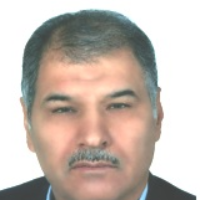Political Islam and the Islamic Revolution A world free of violence
Author(s):
Abstract:
Imam Khomeini (RA) with emphasis on the principle of continuity of religion and politics could lead the revolution in Iran and eradicate tyranny and oppression. He not only turned down the Shahs regime, but also inherited his unique legacy characterizing cultural identity and remained a symbol of resistance within the international arena. Since, the political aspect is most bearing issue to the founder of Irans Islamic revolution. Therefore, desirable Islam from our revolutionary point of view encapsulating the pragmatic Islamic revolution capable of achieving sovereignty which could best be defined as political Islam. However, the political approach of the Islamic Revolution is not unique to the Islamic Republic of Iran. In recent decades, we have witnessed different kinds of political Islam: political Islam in Turkey- liberal Islam, politically conservative Saudi Wahhabi, fundamentalist, political Islam (Taliban) in Pakistan and Afghanistan, political Islam perceivable in Malaysian economy and Islamic terror practiced by ISIL .Despite the common trait of political Islam , theoretical and practical manner of political Islam in Irans Islamic Revolution is fundamentally different in comparison with other types of political Islam mentioned earlier.
Among the types of differences, the issue of violence is of great prominence and importance. While the political Islam of Salafi - Wahhabi, Taliban and especially the Islamic State (ISIL) accommodates overt and covert forms of violence and even The state of being panic which can be seen in political Islam and the Islamic revolutionary movement of Iran was built on elements and attributes that keeps such system clear of any violence or atrocities.
Given the above considerations, the main argument of this paper tape that political Islam as practiced by Iranian Islamic revolution utilizes the benefit of cultural elements and words such as logics, rationality and wisdom, dignity and honor, friendship (tolerance) not only denies and rejects violence and violent irrational and inhumane methods, but also seeks to achieve a world free of violence. To assess this claim, the current research is trying to use library and get the best from reliable sources to collect the appropriate data which should be described and analyzed at later stages.
Hence, the study is a descriptive - Meta analysis bases its substantiation on valid documents and comparative approach. Methods are also being carried out in a way that after introduction and definition of violence and their different theoretical perspectives, the roots of violence are investigated.
Among the types of differences, the issue of violence is of great prominence and importance. While the political Islam of Salafi - Wahhabi, Taliban and especially the Islamic State (ISIL) accommodates overt and covert forms of violence and even The state of being panic which can be seen in political Islam and the Islamic revolutionary movement of Iran was built on elements and attributes that keeps such system clear of any violence or atrocities.
Given the above considerations, the main argument of this paper tape that political Islam as practiced by Iranian Islamic revolution utilizes the benefit of cultural elements and words such as logics, rationality and wisdom, dignity and honor, friendship (tolerance) not only denies and rejects violence and violent irrational and inhumane methods, but also seeks to achieve a world free of violence. To assess this claim, the current research is trying to use library and get the best from reliable sources to collect the appropriate data which should be described and analyzed at later stages.
Hence, the study is a descriptive - Meta analysis bases its substantiation on valid documents and comparative approach. Methods are also being carried out in a way that after introduction and definition of violence and their different theoretical perspectives, the roots of violence are investigated.
Keywords:
Language:
Persian
Published:
The Quarterly Journal of Political Thought in Islam, Volume:3 Issue: 9, 2016
Page:
63
magiran.com/p1663804
دانلود و مطالعه متن این مقاله با یکی از روشهای زیر امکان پذیر است:
اشتراک شخصی
با عضویت و پرداخت آنلاین حق اشتراک یکساله به مبلغ 1,390,000ريال میتوانید 70 عنوان مطلب دانلود کنید!
اشتراک سازمانی
به کتابخانه دانشگاه یا محل کار خود پیشنهاد کنید تا اشتراک سازمانی این پایگاه را برای دسترسی نامحدود همه کاربران به متن مطالب تهیه نمایند!
توجه!
- حق عضویت دریافتی صرف حمایت از نشریات عضو و نگهداری، تکمیل و توسعه مگیران میشود.
- پرداخت حق اشتراک و دانلود مقالات اجازه بازنشر آن در سایر رسانههای چاپی و دیجیتال را به کاربر نمیدهد.
In order to view content subscription is required
Personal subscription
Subscribe magiran.com for 70 € euros via PayPal and download 70 articles during a year.
Organization subscription
Please contact us to subscribe your university or library for unlimited access!


